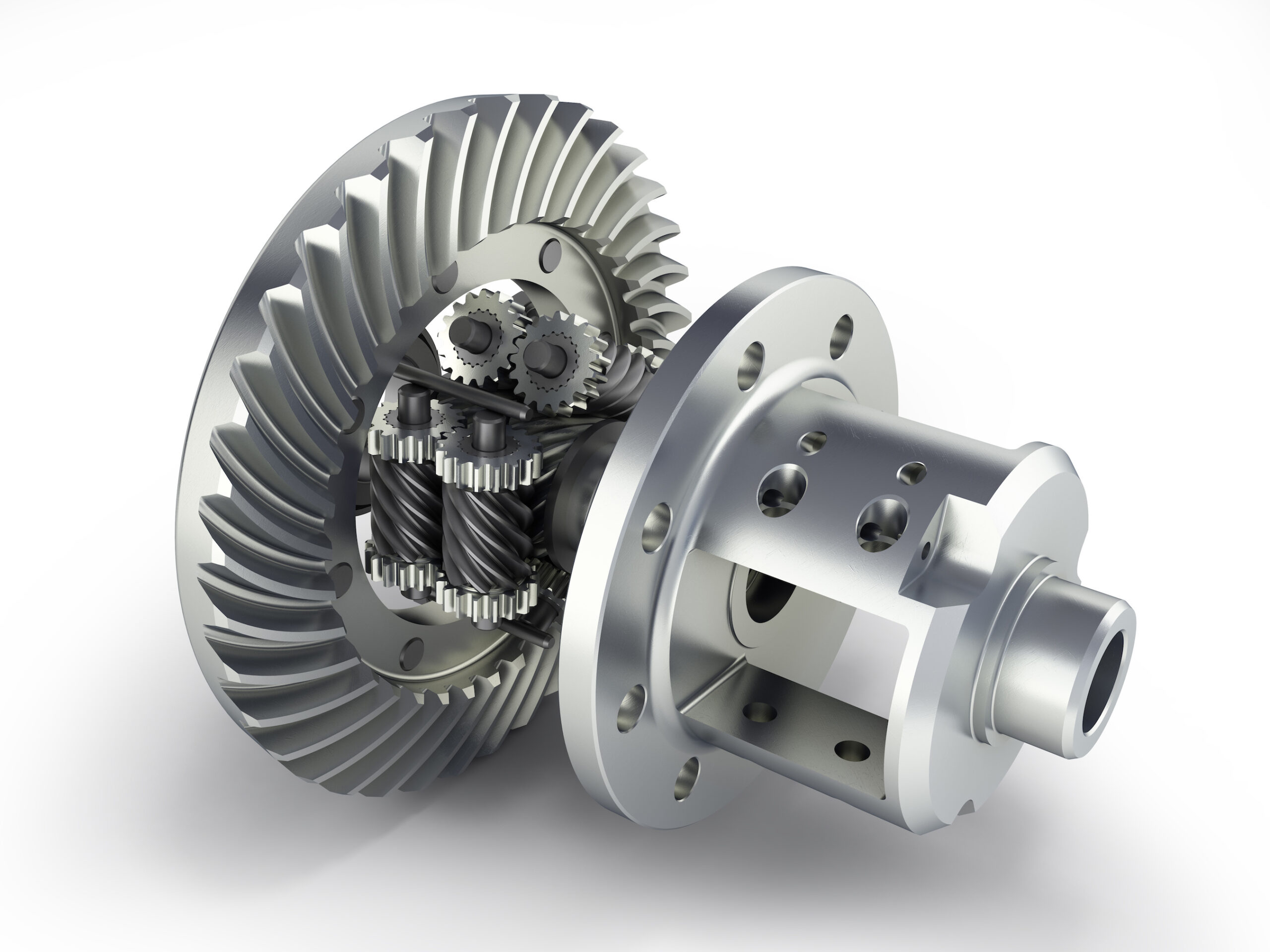When your vehicle is in operation, it is subjected to a variety of stressors such as high temperatures, friction from motion, and dirt and dust from the road. Without some protection from these stressors, your engine and vehicle systems would quickly be damaged. That’s why most vehicle systems use a type of fluid or oil to assist with protection. For example, your vehicle needs motor oil to clean the engine, coolant in the radiator to cool the engine, and transmission fluid to lubricate transmission parts, to name a few. In this month’s blog post, we highlight the importance and purpose of differential oil for the differential.
What is the differential?
The differential is a critical component of your vehicle’s wheel assembly. In simple terms, the differential splits the torque power generated by your vehicle to allow two wheels to travel at different speeds. This is especially important when you are making a turn because your vehicle’s wheels turn at different speeds. During a turn, the inside wheel will rotate slower than the outside wheel. This is because the distances that the wheels travel are different. To compensate for the difference in wheel speed, the differential enables your wheels to simultaneously operate at different speeds on the same axle assembly. The differential performs its function mainly through a set of rotating gears and bearings that create the torque power.
What is differential oil and its purpose?
Differential oil is a major protector of the differential. This fluid is different from motor oil. It is a thick oil with a higher viscosity. Differential oil serves an important role in keeping the gears and components of the differential lubricated. Since the gears of the differential are continuously moving, the friction can be damaging without the differential oil to keep them properly rotating and reduce friction. Differential oil also protects the components from the heat that is generated with the motion of the differential gears. The oil is designed to improve your vehicle’s road performance, by creating a better grip on the road and smoother rotations of the gears.
What happens if the differential oil is low or dirty?
Like other vehicle fluids, over time differential oil will become dirty and lose its efficacy. When the fluid is dirty, its ability to lubricate is diminished and this may cause parts to rub together and even cease up if they do not have the proper lubrication. Similarly, low differential fluid will quickly impact the parts without the necessary lubrication and heat management it provides.
How often should differential oil be replaced?
Most service professionals suggest that you change your differential oil every 30,000 to 50,000 miles. However, you should consult with your owner’s manual for any specific timeframes from the manufacturer.
If you would like to check your differential oil, give the service professionals at Best Western Transmissions a call today to schedule an appointment.

